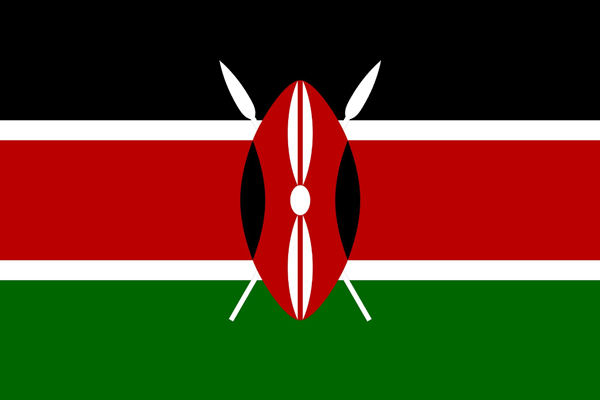
Guest Column: Jared Ubuya
IN Kenya, there’s growing debate about media accountability — that the media should act in the interests of the public good, and that it’s accurate, free and fair. Most of the debate has focused on the lack of quality journalism and a decline in journalistic ethics.
This has led to an increasing focus on the professionalisation of the media sector and attempts by the Kenyan government to introduce legislation to rein it in.
My colleagues and I wanted to know how Kenyan media companies went about ensuring that they were accountable to the public, and the challenges they faced in doing this.
We held in-depth interviews with reporters, editors and news managers from two different media houses. The findings showed that although the media houses have various systems in place, their implementation is weak and inconsistent. Interference by external actors in editorial decisions, pressure to produce articles and funding were all major challenges.
This implies that more needs to be done to improve the quality of journalism. There is a need for well-negotiated, clearly documented and firm measures and incentives by policymakers and practitioners to ensure media houses increase their levels of accountability to the public.
Systems in place
Kenya has some of the most rigorous and bold media in Africa. This is buoyed by constitutional guarantees for freedom of expression, freedom of the media and freedom of information.
- Chamisa under fire over US$120K donation
- Mavhunga puts DeMbare into Chibuku quarterfinals
- Pension funds bet on Cabora Bassa oilfields
- Councils defy govt fire tender directive
Keep Reading
But there are still major flaws in the way journalists operate. Accountability tops the list of concerns.
Media accountability refers to how news organisations or journalists render an account of their activities to the public. The assumption is that journalists and news organisations are more likely to behave in a more responsible way if they know they may be required to account for their behaviour.
In our research the main policies and practices that we came across to ensure this happened were editorial policies and codes of ethics. There were also inductions, training, peer reviews, editorial meetings, quarterly appraisal reviews and constant supervision. Editorial managers are responsible for ensuring that these were implemented and that they eventually became part of the newsroom culture.
If a breach occurred — like lapses in editorial judgment, inaccuracies, biased reporting — editors would send out reminders about the need to adhere to the policies and practices. The editorial department usually handled breaches, but if it was serious — like a corruption incident — it could be escalated to human resources for more decisive action.
Those who committed the breach were liable for sanctions (reprimands and warning letters) and disciplinary measures (like suspensions) or in-house training and mentorship. Sometimes breaches are openly discussed on the intranet by peers and that can be punishment enough.
Challenges
Despite all these measures, breaches happen often, which means that these systems are not working.
We found that there is a lack of commitment to media accountability by the organisations, weak systems within the institutions and interference by vested economic, political or ethnic interests.
A majority of the participants said the media houses were not committed to implementing editorial policies and practices. The systems are there, but they are not used enough.
The pressure to produce articles and meet deadlines was another challenge. Journalists felt like they were too busy to get involved in feedback mechanisms with members of the public — like responding to complaints or issuing apologies and clarifications.
We found that only glaring breaches, like defamation, were addressed. This was sometimes because of a heavy workload. Editors would ignore an earlier mistake because they were busy chasing stories for the next day.
There were also institutional issues. For instance, media houses did not appear committed to accountability mechanisms that had been agreed on by the industry through the Media Council of Kenya. The Council is mandated to mediate disputes between the media, public and government. It is also meant to manage the conduct of journalists and ensure they adhere to codes of conduct.
Media houses were also unwilling (or too financially constrained) to invest in equipment or programmes that enhanced accountability.
Another big challenge was external interference in editorial decisions. The journalists and editors we spoke to said this happened often. They gave examples of major advertisers, political leaders and media owners exerting pressure on them to skew articles in their favour or insisting on censorship.
The people we spoke to also said the government, as the biggest advertiser, put pressure on media houses to give it positive coverage in exchange for advertising. As a result, independent investigative reporting suffered. There were also a lot of public relations exercises in the name of journalism.
Journalists also mentioned that reporters and editors would be biased towards people or organisations associated with their ethnic origin.
Moving forward
There should be incentives — like rewards and awards — to encourage media accountability in media organisations. The Media Council has an Annual Journalism Excellence Awards and the Communications Authority introduced one in 2018. There should be more.
The government should try to direct public advertising spending towards media that engage in accountability activities. It could also introduce financial subsidies as a reward for news outlets committed to media accountability. Many media outlets in Europe accept financial subsidies.
There’s also a big need to look at how journalism is being funded. The current model — relying on government and commercial enterprises for advertising — makes the system vulnerable to corruption. Industry players can start by creating platforms that support independent journalism through contributions and subscriptions from readers and audiences.
Jared Obuya is a lecturer at Moi University in Kenya. He writes in his personal capacity.











